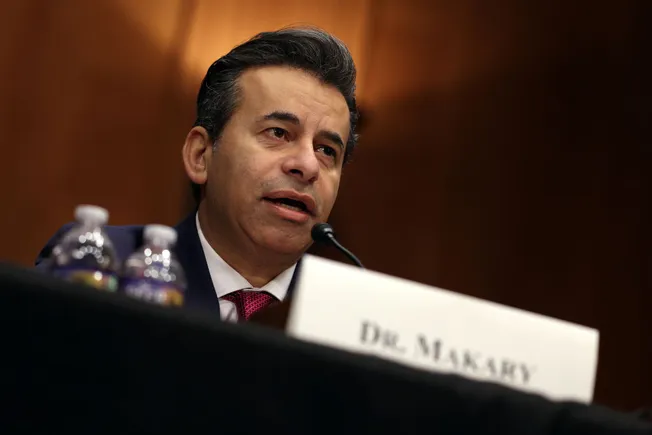OOIDA’s fight against AB5 in California dealt another loss
The last-gasp OOIDA fight against the AB5 independent contractor law in California’s trucking sector has suffered defeat at the appellate level. The post OOIDA’s fight against AB5 in California dealt another loss appeared first on FreightWaves.

The last-gasp battle against implementing California’s AB5 independent contractor law in the trucking sector has taken what might be its final blow in a federal appellate court.
The 9th U.S. Circuit Court of Appeals ruled for the second time that AB5 does not violate various laws that might have kept it from becoming the law of the land in trucking. AB5 has been in effect in numerous other sectors since the start of 2020, though dozens of industries have been granted exceptions from the law.
The court, in a six-page decision handed down Friday, made quick work of the arguments of the Owner-Operator Independent Drivers Association in its appeal of a lower court decision from March 2024 that upheld enforcing AB5 in California trucking.
The OOIDA lawsuit had roots that went back to a 2019 action by the California Trucking Association against AB5, which OOIDA joined as a co-defendant in November 2023. But after the March 2024 defeat, CTA pulled out of the case, leaving OOIDA to fight on alone in an effort that few trucking attorneys saw as likely to succeed.
Legal arguments in OOIDA’s effort were different from those in the original push by CTA, which succeeded in putting AB5 on the shelf in trucking for more than two and a half years on the back of a New Year’s Eve 2019 injunction. But that lower court injunction was ultimately overturned by the same 9th Circuit court (though with different members on the three-judge panel), and the Supreme Court decision not to review the Circuit Court decision meant that AB5, in the summer of 2022, went into effect in California’s trucking market.
Since it joined the case with CTA, OOIDA’s emphasis in its push against AB5 was on different legal arguments than the CTA case. But the 9th Circuit affirmed the lower court in just six pages.
The court in its decision did little more than quote earlier precedents on the issues raised by OOIDA.
For example, on the OOIDA claim that AB5 violates the Dormant Commerce Clause of the U.S. Constitution, the appellate court quoted a precedent saying the clause “is not a roving license for federal courts to decide what activities are appropriate for state and local government to undertake, and what activities must be the province of private market competition.” Quoting another precedent, the panel said the Supreme Court “has frequently admonished that courts should not second guess the empirical judgments of lawmakers concerning the utility of legislation.”
(As a Harvard Law Review article noted last year, the Dormant Commerce Clause has been interpreted by the Supreme Court “not only as an affirmative grant of power to Congress but also as a restraint on the legislative authority of states.”)
The OOIDA argument has been that AB5 discriminates between intrastate and interstate drivers, violating the Dormant Commerce Clause. But laying out its own arguments, the appellate court said OOIDA “implicitly concedes … AB5 does not preclude out-of-state drivers from working in California, nor does it favor in-state drivers at the expense of out-of-state drivers. At worst, AB5 restricts what kind of drivers may operate in California.”
OOIDA had argued that the multistep business-to-business exception in AB5 also did not violate the Dormant Commerce Clause. The B2B exception is a high hurdle to meet to prove a driver is truly independent and not effectively an employee.
OOIDA’s argument was that the B2B exception can only be achieved by an in-state driver given various federal restrictions. But the appellate court said OOIDA did not make its case how the B2B exception was discriminatory “when the regulations apply to all drivers engaged in interstate commerce, including California-based drivers.”
The appellate court said there is no conflict with the Equal Protection Clause of the Constitution, because interstate and intrastate drivers are not treated differently.
OOIDA released a statement that it was “disappointed with this news and assessing options.”
The next step would either be to request the 9th Circuit review the decision en banc – a larger number of judges taking up the appeal – or to appeal for review to the Supreme Court. Getting either an en banc or Supreme Court review hearing has a low chance of success.
A third option would be for OOIDA to view the 9th Circuit decision as the end of the road for the trucking industry’s litigation against implementing AB5 in trucking.
AB5 was passed by California lawmakers in 2019 and signed by Gov. Gavin Newsom. Since the day it was signed, trucking’s view of the three-step test for determining whether a worker is truly independent or is effectively an employee has focused on the B prong.
That section says an independent worker is one who “performs work that is outside the usual course of the hiring entity’s business.” A driver on a lease plan with a trucking company providing work – trucking – that is the usual course of the hiring entity’s business was always seen as likely to trip up some carriers.
But almost three years after the injunction against AB5 in trucking was lifted, there are no known actions by the state against any carriers for AB5 violations, nor lawsuits from aggrieved drivers claiming AB5 violations.
More articles by John Kingston
Georgia tort reform aims to change practices in judicial ‘hell hole’
New Jersey, feds take opposite paths on independent contractor rules
State of Freight takeaways: Freight crash may turn into sudden revival
The post OOIDA’s fight against AB5 in California dealt another loss appeared first on FreightWaves.





















































































































































